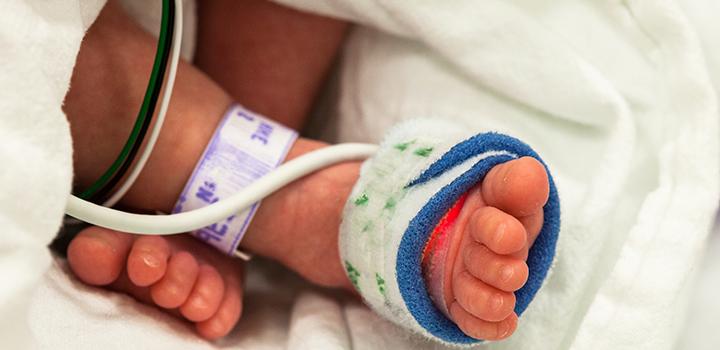Probiotics and breast milk support health of premature babies
By: Communications

Probiotic supplements could save the lives of premature babies and help them develop a healthy microbiome – according to new research involving the University of East Anglia and the Quadram Institute.
A premature start to life is classed as a birth before the 37th week of pregnancy, and it affects around 11 per cent of all newborns in the world.
Premature babies with a very low birth weight face several challenges right from the start of life, including a condition called necrotizing enterocolitis.
This disease affects between seven and eleven percent of premature infants with a birth weight below 1500g and is associated with a mortality rate of 30 per cent.
The new research shows how the necrotizing enterocolitis rate can be kept below three per cent with Bifidobacterium probiotics and breast milk.
The research was led by scientists from the Medical University of Graz, together with colleagues from the Quadram Institute, University of East Anglia and the Technical University of Munich.
The team investigated the success of different therapy options on the microbiome and metabolism of premature babies.
Therapies included antibiotic treatment, antimycotic treatment, use of probiotics, and feeding with breast milk or formula.
A total of 55 very low birth weight infants were included in the study at three hospitals in Graz, Klagenfurt and Leoben in Germany.
The team found that therapies involving the probiotic Bifidobacterium longum subsp. infantis substantially influenced the development of the babies’ microbiome at an early stage. This is because it helps to metabolise milk oligosaccharides contained in breast milk, that our bodies’ own enzymes can’t break down.
The probiotic Lactobacillus rhamnosus also showed a positive but much smaller influence.
Crucially, the beneficial effects of Bifidobacterium longum subsp. infantis depended on concurrent feeding with natural breast milk.
Prof Lindsay Hall from UEA’s Norwich Medical School and the Quadram Institute, said: “We hope our findings will lead to the widespread adoption of these measures, so we can help these extremely vulnerable babies fight off these deadly infections, and also ensure that they get the best possible start to life.”
‘Clinical NEC prevention practices drive different microbiome profiles and functional responses in the preterm intestine’ is published in the journal Nature Communications.
Related Articles

Plans submitted for a new high-tech anatomy centre at UEA
Plans have been submitted by the University of East Anglia for a new future-proofed anatomy suite to be built as an extension to the Edith Cavell Building on Norwich Research Park, following extensive feasibility studies and a successful grant application
Read more
UEA teams up with Age UK Norwich to tackle dangerous dehydration in older people
Experts from the University of East Anglia (UEA) and Age UK Norwich have teamed up to tackle dehydration in later life, producing new resources aimed at older people and professionals.
Read more
Nurses worldwide rely on intuition to triage patients
Nurses around the world use intuition to work out how sick a patient is before triaging for treatment according to new research from the University of East Anglia.
Read more